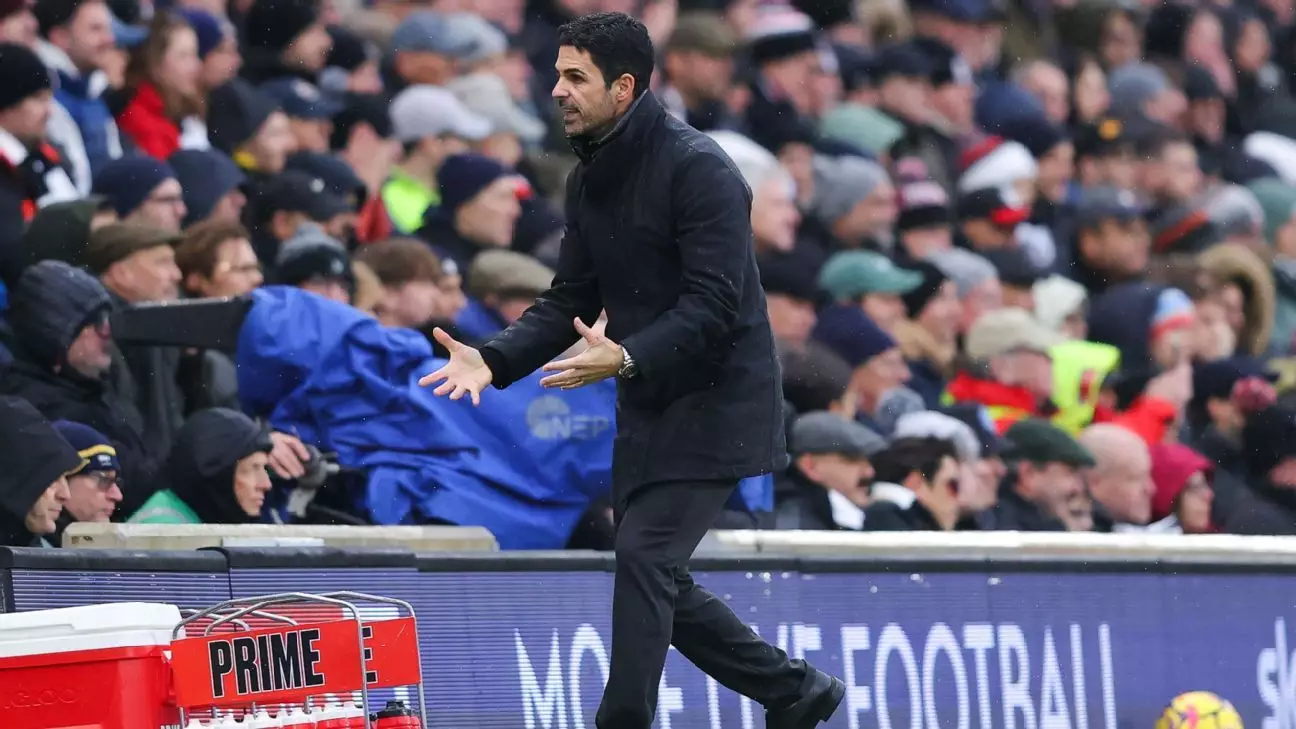Mikel Arteta emerged visibly frustrated yet commendably reflective after Arsenal’s draw against Fulham on Saturday. The match, held at Craven Cottage, saw the Gunners dominated by possession but ultimately falling short of a win despite several goal-scoring opportunities. Arteta’s post-match sentiments echoed a palpable sense of disappointment, as he expressed that his team merited a victory from the clash. However, he also acknowledged Fulham’s tactical prowess, which added a layer of complexity to this outcome, allowing for a begrudging acceptance of the result.
The game was marked by a critical moment when William Saliba equalized for Arsenal in the 52nd minute, converting from a well-executed set-piece after Fulham’s Raúl Jiménez had taken the lead earlier in the match. Saliba’s goal was a testament to Arsenal’s attacking potential and strategic planning, yet it highlighted the frustration that came with misfortunes, such as Bukayo Saka’s late effort being ruled out by VAR for a narrow offside decision. Arteta lamented this twist of fate, pointing out that “for millimeters” they could have clinched a win rather than settling for a draw. This sentiment underscored an overarching theme in the performance—extreme effort coupled with unfortunate outcomes.
One of the striking statistics from the match was Arsenal’s staggering 70% possession rate. Despite this dominant control of the ball, the team struggled to transform that control into meaningful scoring chances. Arteta’s analysis shed light on the challenging dynamics of attacking against a resolute Fulham defense, which consistently thwarted Arsenal’s advances. This inefficacy in threats at goal raises concerns for the squad, particularly their ability to penetrate opposition defenses when they endure prolonged pressure.
Defensive Struggles and Adaptability
Despite the positive attacking stats, defensively, Arsenal faced early vulnerabilities, demonstrated by Jiménez’s opening goal. Arteta’s decision to adapt his defensive lineup, due to injuries to key players like Gabriel Magalhães, undoubtedly tested the team’s depth. In an astute observation, he noted that attributing the early goal solely to personnel changes was overly simplistic. Acknowledging the quality of opposition is a crucial mentality for any manager, especially in a competitively balanced league where tactical finesse often dictates outcomes. Arteta took the opportunity to commend his defenders, particularly Jakub Kiwior, for their ability to adapt and perform under pressure.
Looking Ahead
The result left Arsenal in third place in the Premier League, a position that underscores their potential but also demands more consistent performances to maintain proximity to leaders Chelsea and Liverpool. The match against Fulham served as both a learning experience and a reminder of the fine margins that dictate success in football. Arteta’s ambition remains clear; the team aims for victories and to build on this performance, enhancing their ability to convert dominance into decisive results. As they prepare for future matches, the focus will likely be on fine-tuning their attacking effectiveness while maintaining the resilience displayed in difficult circumstances.

Leave a Reply